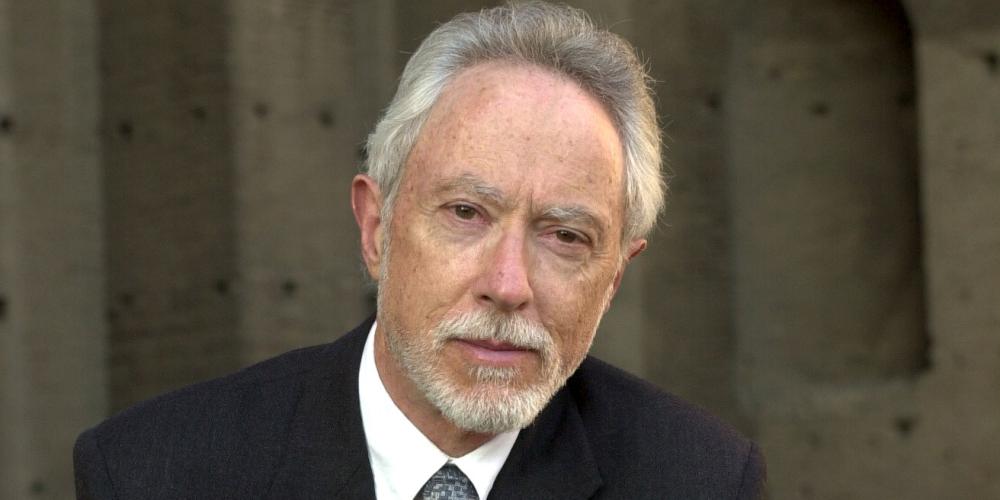
13 October 2025 will be a special day for the Vrije Universiteit Brussel: the university wil confer an honorary doctorate upon the South African–Australian novelist and Nobel laureate J.M. Coetzee. Widely regarded as one of the most influential and innovative voices in contemporary world literature, Coetzee’s work poses searching moral questions about power, violence, language, and responsibility, shaping generations of readers and thinkers alike. Novels such as Disgrace, Waiting for the Barbarians, and Life & Times of Michael K confront us with the limits of empathy and the complexity of human dignity. On this occasion, the author shared his reflections on literature, ethics, and the world today.
You have never published poetry, though you have translated quite a lot. How has that shaped the way you read and write?
Coetzee: “I was not a good poet. But through translation I learnt how to make my language transparent. My English became less dependent on typically English idioms. Translation doesn’t only change the way one reads. It changes, above all, the way one writes.”
"Too often, publishers and critics in London, Paris, or New York decide which stories from Latin America or Africa are heard"
Is everything translatable?
“Not always. Sometimes you can paraphrase a word; sometimes you must admit that you don’t understand it. Better a confession of impotence than the illusion of precision. You must not mislead the reader.”
You have long promoted exchange between South American, African, and Australian literature. Why is that?
“I believe these continents share much: their histories of colonisation, but also a profound relationship with land, nature, and climate. I wanted voices from the South to meet each other directly, without the cultural gatekeepers of the North. Too often, publishers and critics in London, Paris, or New York decide which stories from Latin America or Africa are heard. I wanted to offer an alternative.”
"As the end approaches, I find myself longing to return to Afrikaans, in which I feel lighter, freer"
Some theorists argue that translation is always a form of loss. Do you agree?
“That is often true of poetry. But in prose, a skilled translator can make the difference minimal, sometimes even non-existent. I do not consider the German or Dutch versions of my work inferior to the original.”
The New Yorker once described you as waging a ‘war’ against the English language. How do you see that?
“‘War’ is the wrong word. What I oppose is the marginalisation of smaller languages. English is useful as a lingua franca, but its dominance feeds a dangerous belief: that one language is enough. Especially in English-speaking countries, that leads to a complacency I deeply regret.”
What role does Afrikaans play in your life today?
“Although I live and write in English, it sometimes feels like a disguise. As the end approaches, I find myself longing to return to Afrikaans, in which I feel lighter, freer.”
Your prose style is often associated with cinematic techniques. Is that deliberate?
“I was influenced by European cinema of the 1960s and by photography. But I don’t write according to screenwriting conventions. I often find film dialogue poor and utilitarian. I admire dialogue that gives the impression of someone thinking aloud. That’s why I even dislike most Shakespeare performances — actors seem merely to recite lines.”
"If I had confined myself to writing solely from the viewpoint of a white colonial man like myself, it would have been unbearably dull"
Many writers are asked to interpret the world. How do you view that expectation?
“It’s a romantic illusion. Why should a novelist know more about reality than anyone else? In Diary of a Bad Year I already posed the question: why ask me for political or moral opinions? The fact that one can write fiction doesn’t make one a commentator on current affairs.”
How do you see the debate around cultural appropriation?
“Even with the best intentions, writing ‘from the outside’ is never as authentic as writing from lived experience. Yet literature also depends on imagination and empathy. Why should readers who are moved by such imaginative voices mistrust themselves? The idea that one may write only from within one’s own ‘group’ is unbearable to me. Great art crosses boundaries — think of Tolstoy bringing to life a young woman like Natasha Rostov, or Faulkner writing from the perspective of a Black man. If I had confined myself to writing solely from the viewpoint of a white colonial man like myself, it would have been unbearably dull.”
How do your characters come into being?
“I’m not particularly curious about them. Sometimes they seem like unborn souls knocking at my window, begging to be let in. I help them come into the world, but they are not my children. Once they have enough inner strength, they become independent of me.”
How would you like to be remembered?
“My great-uncle Albert du Biel wrote novels in the newly emerging Afrikaans of the 1920s. In literary history he scarcely appears. At best, as a footnote. If, in the twenty-second century, I too survive as a mere footnote, I shall be content.”
About the event
Tickets for An Evening with J.M. Coetzee are sold out.
Check out our upcoming public events and subscribe to our mailing list. That way, you’ll be the first to hear about new events and discounts!